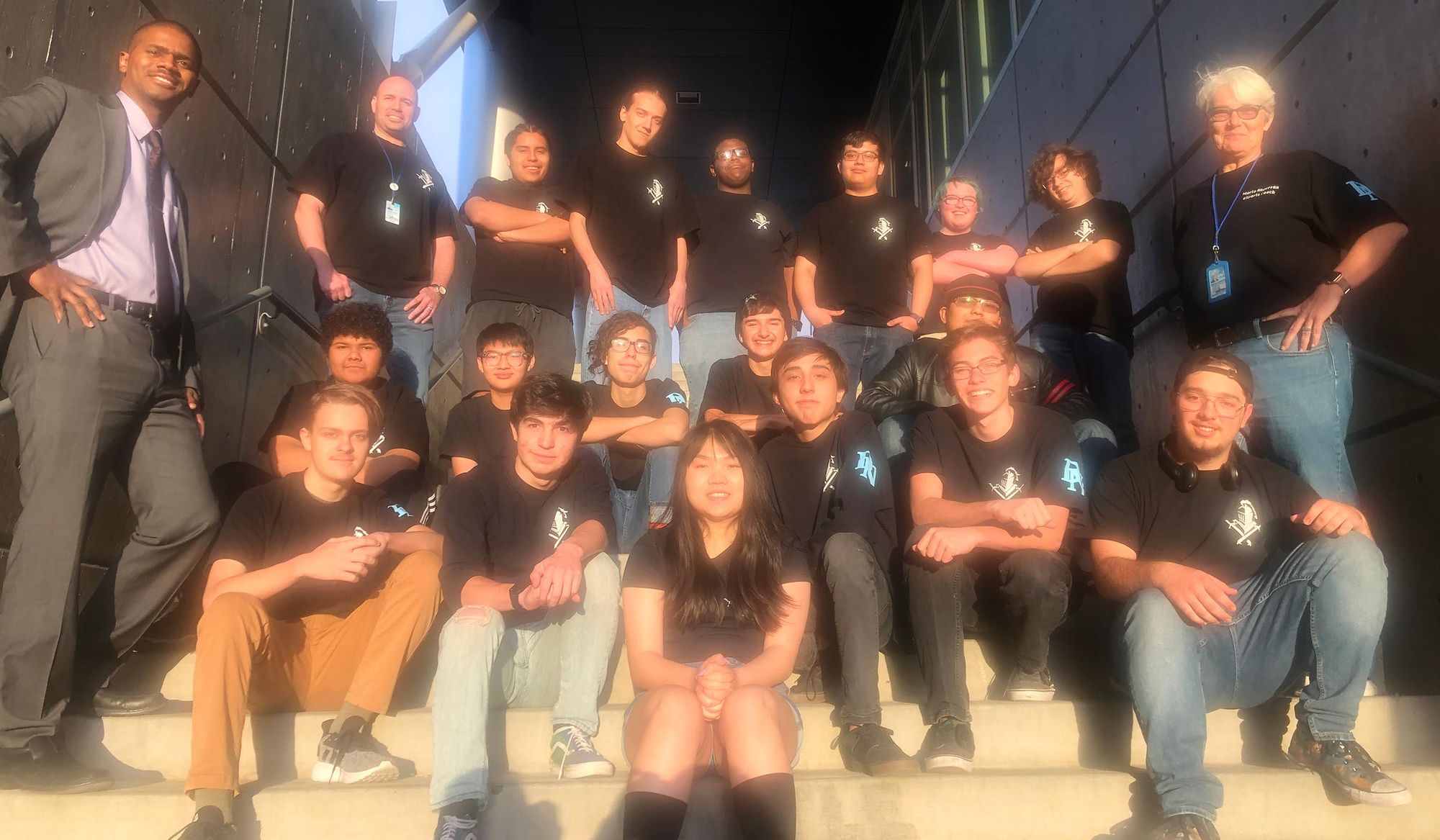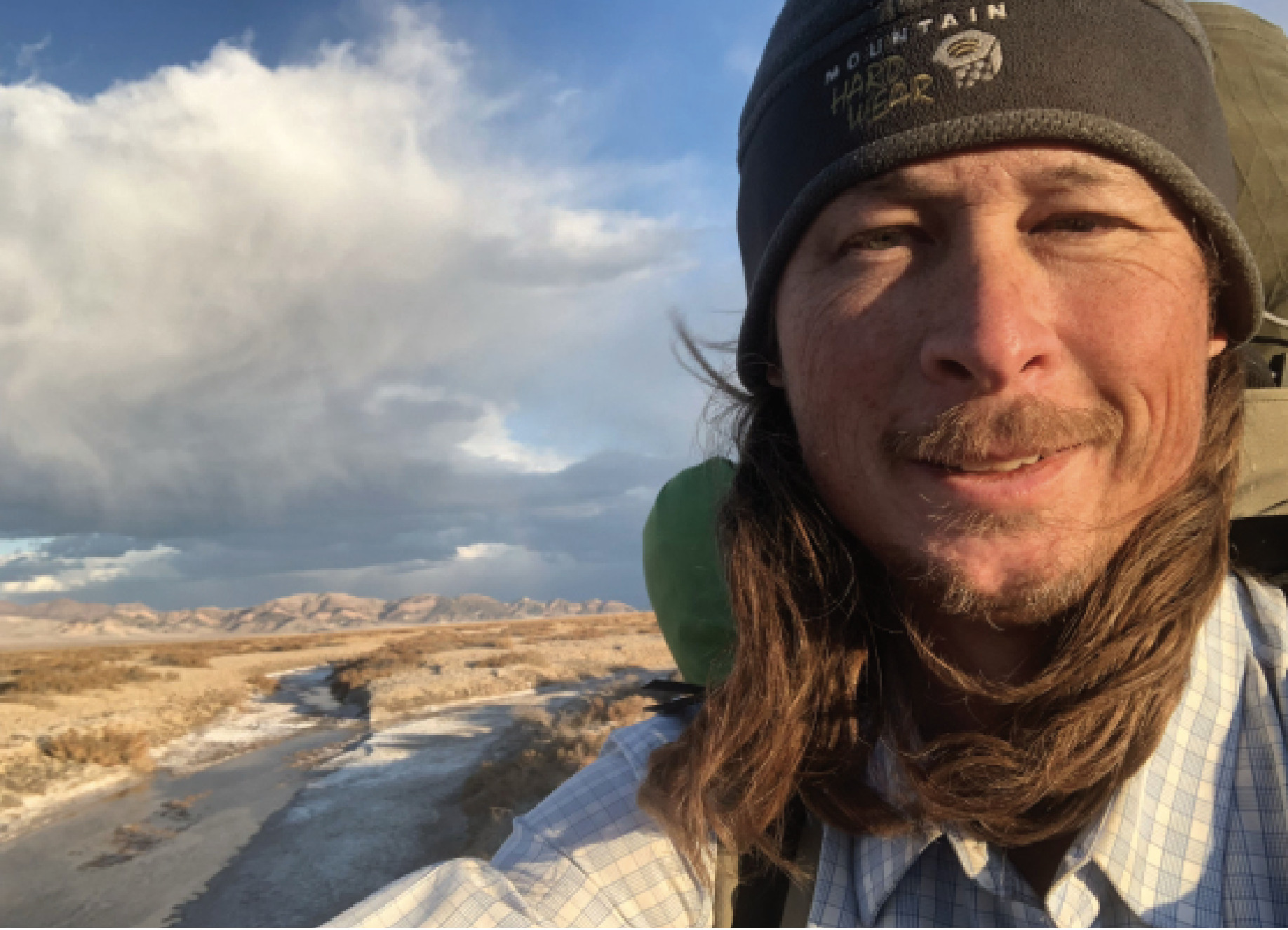Leveling Up the Syllabus
by Wayne Lewis

Bowman followed the advice of his teacher—who covered the application fee—and headed to Caltech to study engineering and applied science. He has channeled that expertise back into education, first as a schoolteacher in his native Los Angeles and today as chief information and strategy officer for Albuquerque Public Schools (APS) in New Mexico. For Bowman, working as a leader at the nexus of education and technology is a tribute to—and a means to magnify—the impact of that science teacher and the other educators who had a deep and lasting influence on him.
“When it came down to who actually made a difference in the trajectory of my life, it was an excellent adult who told me I could do something and backed me up so I could do it,” says Bowman, who earned a doctorate from Pardee RAND Graduate School and pursued postdoctoral research at Harvard. “I believe in public education. It helped me, and I’d like to help others.”
“If teachers are focusing on technology, they’re not focusing on the kids,” Bowman says. “The degree to which the technology can do its job and get out of the way is critical.”
By The Numbers
That mission takes many forms. As the steward of the APS’s data and information systems, Bowman helms the effort to turn raw numbers into insights that drive improvements. At the same time, he oversees the initiative to ensure that every pupil has a device for pandemic-forced remote instruction. He’s also expanded opportunities for students by sponsoring the district’s e-sports program. His impact has earned him accolades, including recognition by Albuquerque Business First in 2020 as one of the publication’s “40 Under Forty” in New Mexico.
Bowman’s vision and analytical skills spur APS’s efforts to harness the power of increasingly abundant data. Job one was to make that data publicly available, so Bowman established a dashboard on the district’s website with rich metrics of school enrollment and demographics. “Accountability starts with transparency,” he says. “Data is critical. Even if people don’t know exactly what it means, it’s typically the one thing that they can agree upon.” Bowman aims to keep applications of that data sharply focused on the needs of the district’s pupils. He has employed student data, for example, to identify those who may be on the verge of trouble and could benefit from intervention by the counseling department, and helped put test scores into a context that can guide curricula and teacher training. “You find the people who can do something different to make positive changes in the lives of kids,” he says, “and you find out what information they need to better make that decision or take that action.”
In this endeavor, Bowman cites the influence of his days at the Institute.
“The most accurate way to describe my approach is that I’m an engineer and a problem solver,” he says. “That’s what I got from Caltech. It was a heavy dose of difficult problems that all needed to be solved, and learning how to find the next answer—and how not to give up.”
All About Connection
Bowman’s strategies are guided by experiences from his own schooling and his time as a teacher.
“To be a good teacher, you systematically, regularly, and somewhat effortlessly connect with somewhere between 10 to 300 young people a year; demonstrate that you care about them; and convince them that in some part they should live their lives based on what they learned in your classroom,” he says. “That takes a lot of emotional fortitude. Technology is a way to support and sponsor that type of connection, and make it easier.”
Resourcefulness, dealmaking, and coordination were necessary to enable home connectivity after COVID-19 contagion suddenly drove instruction online. In addition to APS-provided hotspots, families could get access to federal funding and low-cost basic broadband from a local provider. “It was basically ‘all of the above’ to try to solve the problem,” Bowman says.
He tips his hat to the stripped-down Chromebook as cornerstone hardware for facilitating connection between teachers and students. Ease of use and setup kept his IT team from being overwhelmed and allowed teachers to spend less time providing tech support.
“If teachers are focusing on technology, they’re not focusing on the kids,” Bowman says. “The degree to which the technology can do its job and get out of the way is critical.”
Ready Player One
A movement emerged in 2018 to institute e-sports—in other words, team video game competitions—in New Mexico high schools. Fitting with his tech-forward role at APS, Bowman rallied volunteers on his team to push for it at the district, despite some internal resistance from traditionalists.
“I said, ‘It would be a shame for it to just die because we don’t understand it,’” he recalls.
Securing grant funding to cover fees for all high schools was crucial. “If you don’t take affirmative steps toward having some level of equity, the only folks who are going to be able to access it are the ones who always have,” Bowman says. “It doesn’t make a very robust program when there are haves and have-nots.”
As executive sponsor and cheerleader for the program, he has watched as e-sports grew and thrived in the district, one of the bright spots through the pandemic. APS’s Del Norte High School even won a state championship over better-resourced schools in 2022. The team excelled across five video games comprising racing (Super Mario Kart 8), combat (Super Smash Bros. Ultimate), and contests based on traditional sports (Madden NFL 2022).
The impact on players is what truly excites Bowman. “For some of the kids, it is a lifeline,” he says. “It’s an opportunity for leadership, to be recognized for their skills, and to fit in. And it frankly wouldn’t exist otherwise.”
He’s particularly thrilled that a graduating senior recently received an e-sports scholarship to attend the New Mexico Institute of Mining and Technology, the third such award so far.
“That’s what’s cool about education,” he says. “You put in all the work, and then all of a sudden you somehow have an amazing young adult who is going to do awesome things.”


Wayne Lewis has been a postal worker, security guard, bass player, executive secretary, music critic, beard model, and standup comedian. Today, he writes and consults for a range of organizations that make the world a better place, including the best academic institutions in the Los Angeles area. Born in Jamaica and raised on the East Coast, Lewis lives in a suburban neighborhood of Los Angeles with his wonderful wife and two cats named after action movie heroes from the ’80s.
Related Articles
-

Transmission 2024
From the Board Chair of the Caltech Alumni Association
-

Meet the New Leader of Alumni Engagement
Following a national search, Mario Peraza, MEd, was named assistant vice president for alumni relations by Caltech, effective June 12,2024.
-

Miles and Miles of Mojave
Nick Van Buer, PhD (BS ’05), a geology professor at Cal Poly Pomona, trekked 530 miles across the Mojave Desert from January to March 2022 to explo...